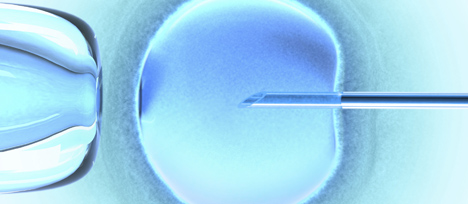Infertility

Infertility - the inability to conceive a pregnancy naturally - is affecting an ever-increasing number of couples. Generally speaking, if a couple has been having regular unprotected sex for a year without getting pregnant, they are considered to be suffering from reduced fertility.
No one is really sure why infertility rates are going up, but doctors suspect that modern lifestyle factors are involved, alongside the fact that more and more women are delaying having a family until their mid-thirties or even older. Being a little older does play a role, certainly, but infertility can affect men and women of any age. In some cases, a couple is affected by male and female factor infertility problems at the same time.
Thankfully, fertility treatment technology has advanced far enough that it's now possible to help many infertile couples to have children.
Female Infertility
The female reproductive system is a complex thing. Any number of "components" can malfunction and give rise to fertility problems. Sexually transmitted diseases (STDs) can cause female infertility, as can hormonal imbalances and ovulatory disorders, as well as conditions such as endometriosis, polycystic ovarian syndrome, and uterine fibroids. Being overweight and leading an unhealthy lifestyle are often curable causes of female infertility.
There are many tests available to diagnose female infertility, and advanced treatments for helping infertile women to become mothers. In some cases, female infertility remains unexplained. This is a very frustrating situation to be in, but nevertheless, women who've received a diagnosis of unexplained infertility have succeeded in having children through fertility treatments.
Male Infertility
Male infertility is just as likely as female infertility to be the cause of a couple's fertility issues. There are many tests available to diagnose male infertility, some of which can even be performed at home.
Men with sperm production problems (low sperm counts or poor sperm quality) may have difficulty getting their partners pregnant. Certain genetic conditions can also cause a man to be infertile, as do hormonal problems and physical problems in the male reproductive system (for example, blockages in the testes or problems with erectile function).
Just as poor diet can cause female infertility, men who don't eat right, drink too much and smoke may be reducing their own fertility. This infertility cause is often reversible.
Infertility Treatments
The type of treatments recommended to a couple depends on the cause of the infertility (if any is found) and whether the fertility problem is with the man, the woman, or with both of them. In any case, a range of treatments is available. Treatment usually begins with the least invasive methods, and if these don't work, moves on to more invasive methods. Drugs, surgery and artificial reproduction technologies such as IVF (in vitro fertilization) and IUI (intrauterine insemination) are all used to help treat infertile couples. These methods don't always work however - therefore some infertile couples are obliged to consider ways of having a family other than bearing a child themselves.
Infertility Questions
Infertility gives rise to lots of doubts and questions in the minds of affected couples. Can it be cured? What is the cause? How long will it last? What treatments are available? Are the treatments safe? What are the chances of treatments being successful? Should we consider adopting? This section aims to answer these and other infertility questions.







Share the post with friends: